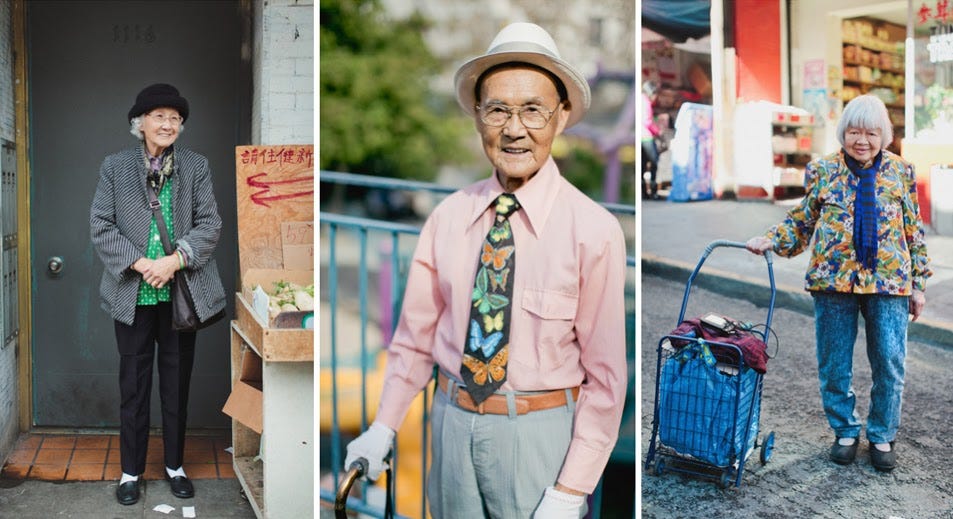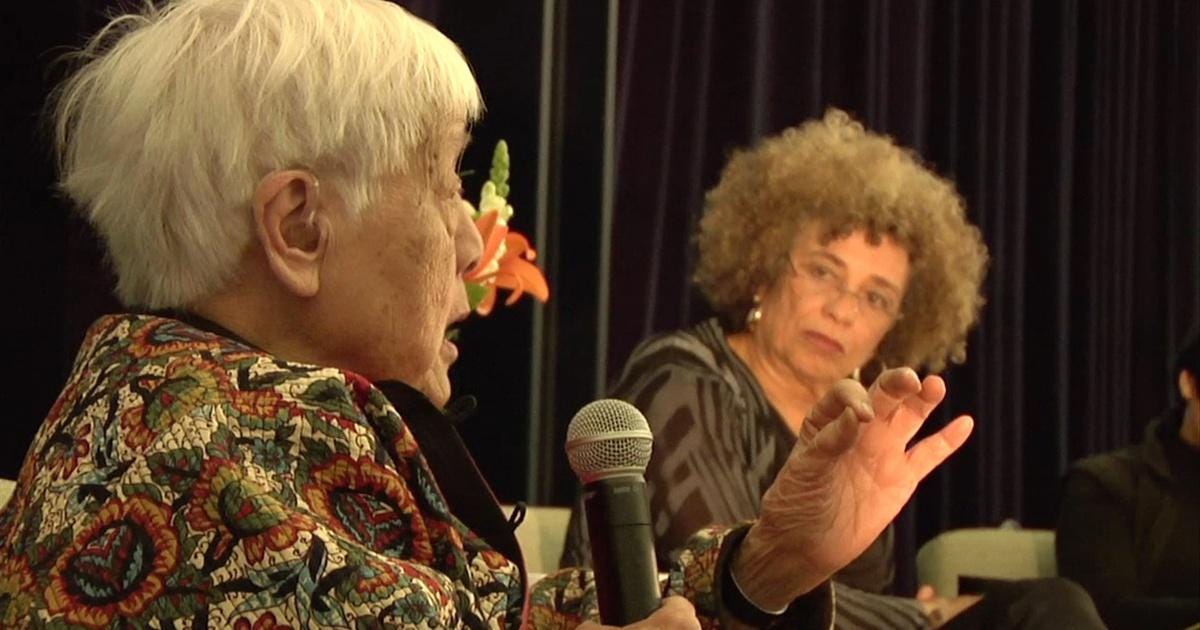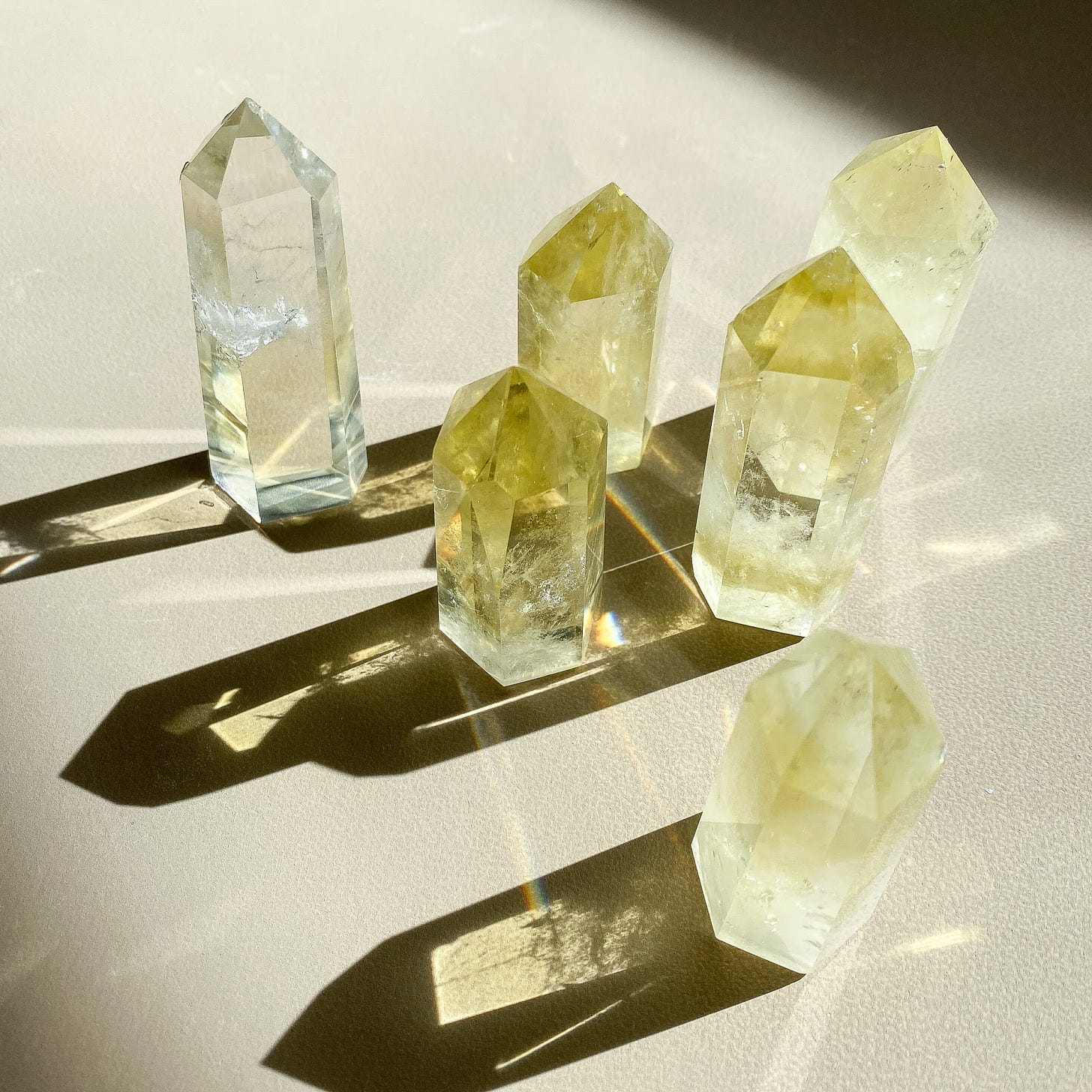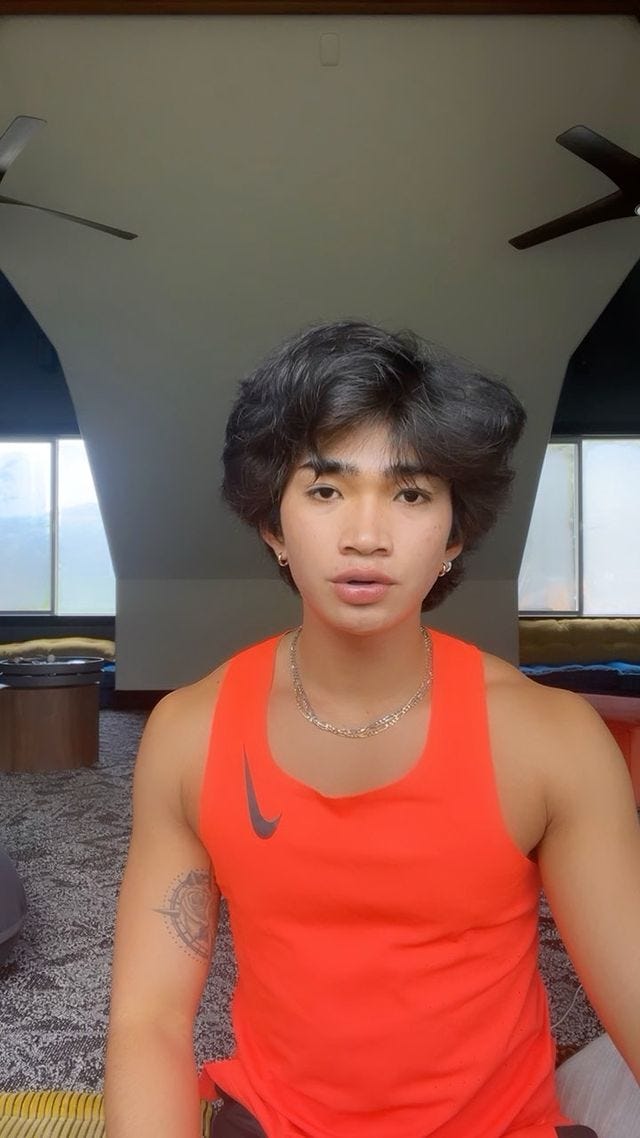A conversation between Grace Lee Boggs and Angela Davis has been making its way around the internet, and something Grace said stopped me dead in my tracks while I was sorting laundry.
I had never seen the interview before, or if I had I completely forgot it, but I couldn’t imagine a more important sentiment for the current moment. In an introduction to the lifelong activist and philosopher, Boggs says flatly: “Because I was born to Chinese Immigrant parents, and because I was born female, I learned very quickly that the world needed changing.” The audience laughs.
She goes on to expand her definition of “changing the world,” a phrase most of us rarely utter because it holds so much responsibility and too much cliché all at the same time. But the way she cracked open the term is one of the most life-giving things I’ve ever heard, and I want you to hear it too (link queued up to the quote to listen along):
“How we change the world and how we think about changing the world has to change… The time has come for us to reimagine everything. We have to reimagine work and go away from labor. We have to reimagine revolution and get beyond protests. We have to reimagine revolution and think not only of the change in our institutions but the changes we have to make in ourselves. We are at the stage where the people in charge of the government and of industry are running around like chickens with their heads cut off and it’s up to us to reimagine the alternative and not just to protest against them and expect them to do better.
We can’t expect them to make it. We have to do the reimagining ourselves…
…We have to do what I call ‘visionary organizing.’ We have to see every crisis as both a danger and an opportunity. It’s a danger because it does so much damage to our lives, to our institutions, to all that we have expected. But it’s also an opportunity for us to become creative, for us to become a new kind of people that are needed at such a huge period of transition.”
As I wrapped my head around these words, I immediately became emotional. I don’t really need to say that last week contained a lot of emotional pain for people reading news in the US. It is difficult to write about because it’s too easy to center my own hurt in the sadistic American game of “Which Historically Oppressed Class Has to Publicly Grieve a National Tragedy This Week?” But what I can say is that I felt a loss knowing where to go from here after being reminded for the 12892th time that our systems are just so fucking broken, and that the people we love are in danger because of it.
We have to reimagine everything. Okay, got it. Hmm. Reimagine everything. Everything? Yes, okay, everything.
An easier mantra said than done, as is the case with any aphorism. But this lesson rings true over and over again from the work of abolitionists and transformative justice organizers who teach a similar sentiment. Despite not knowing the exact “how” of what we need to do, there is something very freeing to me about giving a middle finger to the powers that be and building a completely new world for ourselves.
I fucking hate what I’m about to say right now, but the witch who sells me my crystals said something I really needed to hear when I was picking up more lemon quartz this weekend. In fumbling through the routine small talk of “So how about this pandemic, huh?” the witch, sensing the generic grief and frustration in my voice, offered me some hope.
I won’t attempt to paraphrase but in a sense he prophesied that, as a culture, we are on the verge of one of the most joyful and creative periods the world might ever know. Think about it, he said. We’ve spent a year indoors, resourceless, unable to see most of our circles, energies compressed, creatively blocked, anxious, depressed — we aren’t even moving our bodies as much as we used to.
“But the pendulum always swings back,” he said. After just a little more waiting time, all that turmoil, all that hurt, all that pent up kinetic force, he said with the shiny yellow gemstone in his palm, so much joy is on the horizon. A prolific and necessary period of creation is riiiiight there, *Natasha Bedingfield voice* so close we can almost taste it. The parties we will have, the projects we will pursue, the things we will create, the richness with which we will live our lives, the universes we will construct — we will be building like never before.
Could there be a better time to reimagine everything? Everything!! And when we get to see the fruits of some of that labor, it will be such a healing thing.
But understanding Grace’s words also means that a lot of this world-building we may never get to see. Our change-making, reimagining, advocacy, and activism — we may never reap the rewards of it, and that is its beauty. Like an ancient tree, like a bloodline, we are passing this energy down to generations we will never meet, people we may never understand, and those people will be better off because of it.
I can’t wait to create with you.
Xx Fran
some things that brought me joy this week

1. My friend Dynie recently paid homage to the work of Andrio Lo and Valerie Luu, who have dedicated a whole ass book to the fashion and wisdom of Chinatown’s elders. There are a few pull quotes and images in this link, but I strongly recommend getting your hands on a copy so you can peruse the totality of their lewks.

Admittedly, elders are one of my most powerful emotional triggers, but if this doesn’t boost your serotonin, I truly don’t know what will.
2. This interview excerpt from Maxine Hong Kingston is among a treasure trove of things Genevieve posted (which is also where I came across the above Grace Lee Boggs interview). “How are we going to build it, if we don’t imagine it?” she asks.
3. The Boggs-Davis interview exists in full on YouTube as well, and I strongly recommend putting it on like a podcast for your morning coffee.
4. I’ve recently fallen in love with the artist Weyes Blood. I was reminded of her song “A Lot’s Gonna Change” after her appearance on the extremely average Lana Del Rey album that just came out. This song really put me through it this year and has already most assuredly secured its place in my most-listened-to for 2021’s Spotify Wrapped. The whole album is so, so good, but this track in particular is a beautiful showcasing of what she does best — not to mention fitting for the theme of today’s newsletter. Those haunting minor keys! Hope with a sharp edge. The soft crooning of her voice! That is so uncannily like Karen Carpenter’s! Holding all of her 70s-era Americana pathos with the clarity of a bell. Not to mention the lyrics are a poetry that has covered me like a balm:
And no good thing could be taken away
If I still believe that hearts don't lie
You're gonna be just fine
But, babe
A lot's gonna change
In your lifetime
Try to leave it all behind
5. The darling Chase Strangio hosted a conversation with current Drag Race star Gottmik about the stakes of anti-trans cases currently sweeping the nation. Though the subject matter is grave, I can’t help but feel excitement and hope about this meeting of the minds and the joint effort the made to educate more people around an epidemic of violence currently trickling through our courts.
6. Bretman Rock has the only mood for this week.
7. I forgot about this interview with Ocean Vuong for On Being until Angela brought it back into my periphery. In it, Ocean describes the experience of losing an uncle to suicide and feeling like there was more to be done with language to remedy such hurt.
The way we say hello to each other — “Hi, how are you?” “Oh, good, good, good, good, good.” The “how are you” is now defunct. It doesn’t access, it fills. It’s fluff.
...I think we’ve built shame into vulnerability, and we’ve sealed it off in our culture — “Not at the table. Not at the dinner table. Don’t say this here. Don’t say that there. Don’t talk about this. This is not cocktail conversation,” what have you. We police access to ourselves. And the great loss is that we can move through our whole lives, picking up phones and talking to our most beloveds, and yet, still not know who they are. Our “how are you” has failed us. And we have to find something else.
In the wake of their grief, Ocean describes going on a long walk through Brooklyn thinking about their uncle and then noticed these fire escapes on every building.
And I thought about that. What if literature, my participation in it — that’s my field, if you will — what if the poem, the story, the novel, at its best can serve as a fire escape? Because on the page, you don’t have the awkward reality of a body bumping into someone in the supermarket. You don’t have to say, “How ‘bout them Patriots?” You don’t have to talk about the weather. You can go right in, deep. And I really have been — it changed the way I thought about writing and literature, in that if we have the fire escape as a reality in our buildings, what does it look like in the reality of our communication, in our language? What does that look like?
And I’m still figuring that out. I’m still — every book, every poem, I think, is my attempt at articulating a fire escape.
Let’s create fire escapes for each other. <3
this week’s action
The national anti-harassment organization Hollaback! has quite a few resources for bystander intervention training. Despite how scary a prospect it is, I think everyone should take the time to learn how to intervene in a potentially violent situation. It is better to learn now so you can know for the future, than to do it after the fact when it’s too late. I personally have never taken a class before and am excited to learn. There are classes you can sign or waitlist for, and then PDFs and infographics for you to consume on your own.






I think the key to hope right now is imagination. We have the privilege to imagine a world that works better for us and our values!